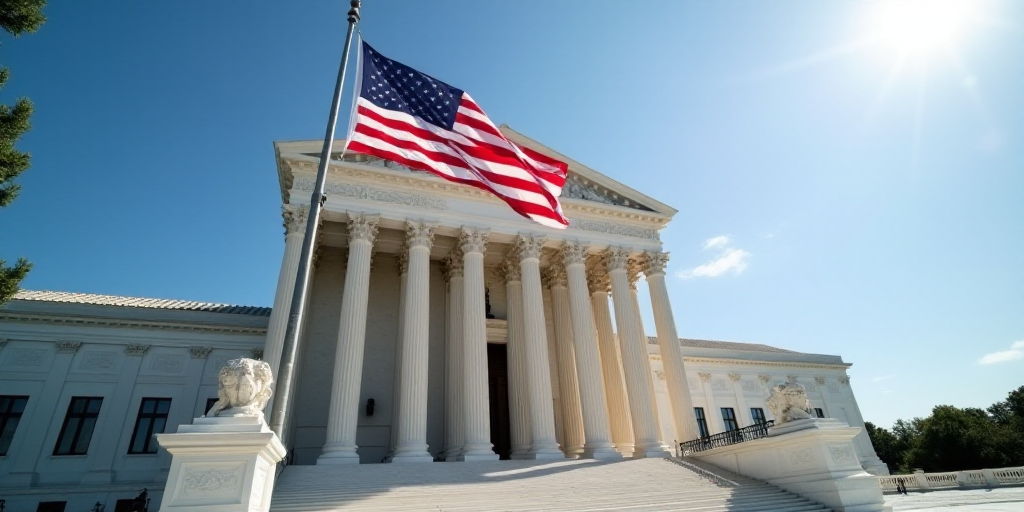Background on Donald Trump and the Case
Donald Trump, the 45th President of the United States, has been a polarizing figure since his inauguration on January 20, 2017. His administration has pursued various controversial policies, including a decision to deny birthright citizenship to children of undocumented immigrants or those with temporary legal status, such as asylum seekers or visa holders. This move directly challenges the 14th Amendment of the US Constitution, which has been in effect for over 150 years and guarantees citizenship to anyone born on US soil.
The Legal Challenge
Following Trump’s executive order, the district courts in Maryland, Massachusetts, and Washington state issued injunctions, deeming the order unconstitutional. These rulings were a result of legal challenges from democratic judges who have previously halted other Trump administration initiatives, many of which were migration-related.
Supreme Court’s Ruling
On this particular Friday, the US Supreme Court sided with President Trump by limiting federal judges’ ability to block administration decisions they deem illegal. The 6-3 decision, with conservative justices in the majority, stated that nationwide stays issued by lower court judges “likely exceed the equitable authority granted to federal courts by Congress.”
Justice Amy Coney Barrett, who authored the majority opinion, emphasized that federal courts do not have general oversight of the executive branch but instead resolve cases and controversies according to the authority granted by Congress. She further explained that when a court determines the executive branch has acted unlawfully, the solution should not involve the court overstepping its own bounds.
The Impact on Judicial Oversight
This ruling will have significant implications for the judiciary’s capacity to check Trump and future US presidents. The case primarily addressed whether a single federal district court judge has the right to block a presidential decree nationwide while the matter is being litigated in courts.
Birthright Citizenship and the 14th Amendment
The 14th Amendment, a cornerstone of American civil rights, has long protected birthright citizenship. Trump’s attempt to undermine this principle through executive action sparked legal battles across the country. The Supreme Court’s recent decision, however, does not directly address the constitutionality of Trump’s order but rather restricts judges’ power to intervene in executive decisions.
Key Questions and Answers
- What is the main issue in this case? The central question revolves around whether a single federal district court judge can issue nationwide stays on presidential decisions while the matter is being litigated in courts.
- Who are the key parties involved? President Donald Trump and federal judges who have issued injunctions against his executive orders are the main parties involved.
- What is the significance of the Supreme Court’s decision? The ruling limits federal judges’ ability to block administration decisions they deem illegal, thereby impacting the judiciary’s capacity to check future presidents.
- What is birthright citizenship, and why is it relevant? Birthright citizenship, enshrined in the 14th Amendment, grants US citizenship to anyone born on American soil. Trump’s attempt to end this principle through executive action sparked legal challenges across the country.






